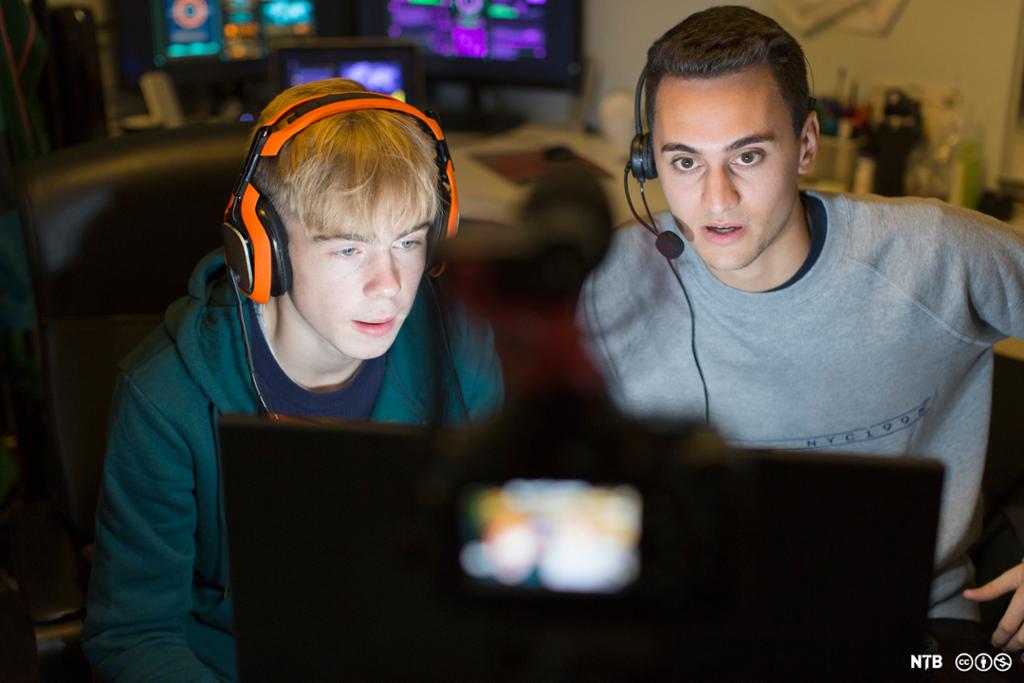Analysing Computer Games

Computer games are part of everyday life for many people. This makes it interesting to subject the games to critical analysis in the same way we explore other texts and media types.
When analysing computer games, theories from literary science, drama, and the arts have been used to analyse the characters in the game and how they develop, the stories, elements such as music and images, as well as other characteristics.
Over time, researchers have developed their own theories that are used when analysing and interpreting computer games. These theories focus more on the interactive environment in games, and how the player relates to this environment. Researchers emphasise that computer games are unique cultural expressions, and that they cannot just be regarded as interactive, complex texts.

The game genres that have developed over the years often say something about their gameplay: skill games, simulation games, adventure games, strategy games, online games, and learning games are some of the most common game genres. We also have genres that describe features of the story in the game, and not the gameplay, for example the horror game genre.
The interactive side of computer games is called 'gameplay'. Anything a player can do in a computer game is part of gameplay. The interactive nature of computer games indicates that what happens in the game does, to a certain degree, depend on the player's actions. Therefore, the player's actions may also be regarded as part of gameplay.
What do we look for when we are going to describe gameplay? If gameplay is defined as everything a player can do in a computer game and anything that happens in a computer game because of the player's actions, then some games will offer infinite possibilities for what may happen. When we write about gameplay we should concentrate on the most central aspects of the game's gameplay. As usual when you are writing, you must focus on what you believe to be most interesting or most relevant.
Think about / discuss:
What types of games do you prefer to play? What characterises gameplay in the games you enjoy?
One way to structure a computer game analysis that focuses on gameplay and interactive elements, is to first describe the environment in the game as a framework, and then look at the relationship between the player and this environment.
The environment in the game:
Visual elements: character design, backgrounds, objects, menus, landscapes, colours, patterns, video sequences, fonts, layout, symbols and visual references to other games or other texts.
Auditive elements: music, voices, sound effects.
Narrative elements: Some games have elements of stories in the form of subtitles and video sequences. The character's development throughout the game can also be interpreted as narrative elements.
The player in the environment:
Gameplay: Who do you play as in the game? What are your abilities? What kinds of tasks or challenges do you have to solve? Do you play with others? How do you interact? What is the pace of the game?
Game mechanics: Game mechanics are all the methods that are used to interact with a computer game. Running, jumping, shooting, building, or climbing are examples of game mechanics.
Can you move freely in the game environment, or do you have to follow a specific path? What kind of game mechanics is used in the game?The interaction between the player and the environment: What factors make the game immersive? What perspective do you have when you play? Do the visual elements imitate reality? Does the controller give you physical feedback? Do the sound effects reflect your movements?
Experience: How do you feel when you interact with the environment?
Think about / discuss:
What features of a game do you describe when you want to recommend a game to others?
Many texts want to tell us something about the world: they convey a message. Can computer games have a message, or are they made only for entertainment? Some of the criticism against game developers has been that they focus only on entertainment and do not exploit the unique opportunities the interactive format offers for conveying a message. A game allows the player to understand complex issues by having their own experiences and discovering things for themselves.
One example of a game that has abandoned the entertainment format in favour of conveying a message is That Dragon, Cancer. In the game, game developer Ryan Green conveys the hopelessness a parent feels when their child is seriously ill. His son, Joel, died of cancer aged four, and the game consists of different scenarios that allow the player to experience what everyday life is like when you parent a child with cancer.
By following the link below to YouTube, you can watch a trailer for the game That Dragon, Cancer: Link to trailer for the game That Dragon, Cancer on YouTube
Think about / discuss:
What is different about the way that computer games like That Dragon, Cancer convey a message and the way a book or film conveys a message?
Since computer games are such an important part of everyday life for many young people, it is important to ask what ideas they convey. Violence in computer games has been the subject of controversy and debate. While some people would like to see such games banned, others raise the point that computer games provide a valuable social arena for many people.
Another subject that has been widely debated is the representation of women and minorities in computer games. Until recently, the gaming industry was dominated by men. Female characters have been absent, sexualised, or based on stereotypes. The male characters have also represented an ideal that is questionable. Minority characters have been absent, and ethnic stereotypes have been used in the portrayal of enemies.
Think about / discuss:
Think about the main character in the last game you played: What kind of values or qualities do they represent?
Were there enemies in the game? What values or qualities did they represent?
Computer games are generally less reviewed by newspaper and TV critics than books or films. On YouTube, there is a plethora of videos about games, for example videos where players show screen footage of their gaming. This may be the reason why YouTube has become the arena for critical and analytical discussions about games as cultural expressions.
Matthewmatosis is one example of a YouTuber who makes videos that discuss computer games in depth.
By following the link to YouTube, you can watch Matthewmatosis's review of Death Stranding. Link to review of Death Stranding by Matthewmatosis on YouTube
Write:
You may work alone or with a partner.
Choose a computer game you have access to, play it, and write an analysis of it using relevant information from the article.
You may have to play the game several times while you think about what to include in your analysis.
If you don't have a computer game you would like to write about, you may explore the web browser games found by following this link to Spillpedagogene's website: link to list of web browser games on Spillpedagogenes' website
